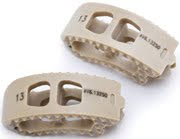Nanoscience Instruments Announces Worldwide Distribution of Easy-to-Use CNT System
Nanoscience Instruments announces worldwide distribution of a new benchtop carbon nanotube synthesis device. The Nanotech Innovations SSP-354 is a low-cost system for producing high-quality, multi-walled carbon nanotubes. The device uses an injection CVD process developed at NASA and is integrated into an instrument small enough to fit in a fume hood. The system can produce research-quality, multi-wall carbon nanotubes within a few hours. The SSP-354 CNT system was designed with both affordability and ease of use in mind. The user injects Nanotech Innovations' organometallic precursor solution into a two-zone furnace where iron catalyst particles are formed. Once growth is catalyzed, the nanotubes form on the surface of a quartz process tube, which is later removed to collect the material. The nanotubes average 50 nm in diameter and can be anywhere from several micrometers to a few hundred micrometers in length, depending on operating parameters. Because the innovative design elimi






